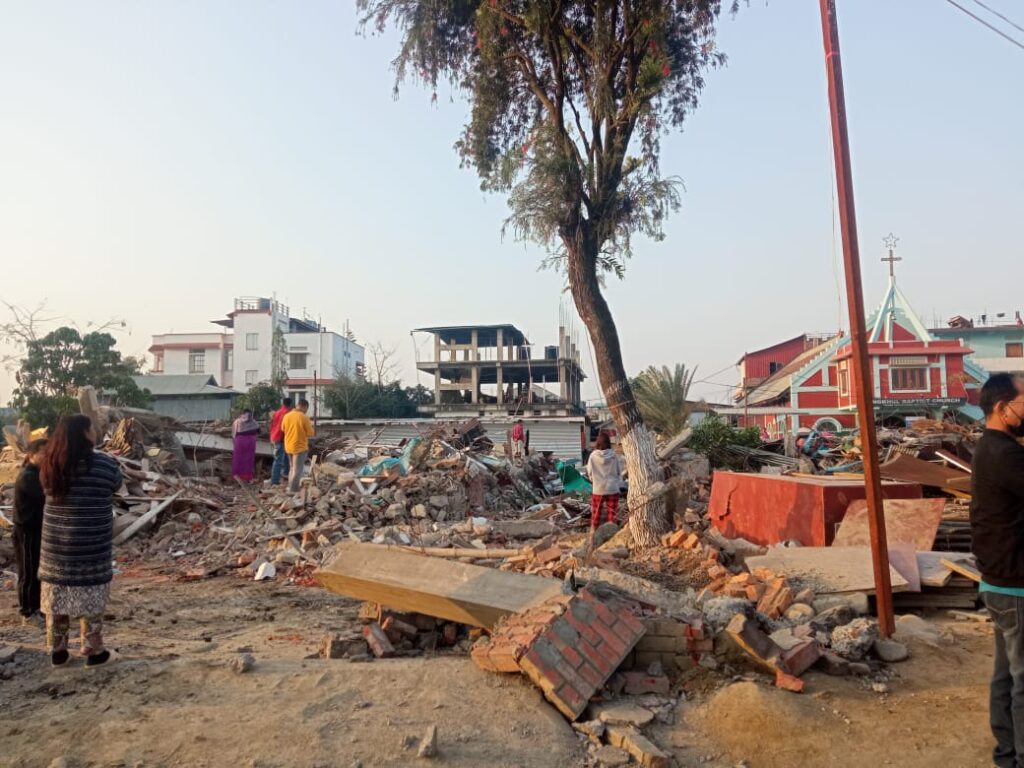Joaquim Magalhães de Castro
The recent wave of violence in Manipur, a northeastern state of India, is causing deep consternation among the ecclesiastical authorities of the subcontinent, as attacks on the country’s Catholic community are increasingly recurrent. The ecumenical organization United Christian Forum (UCF) has just launched an appeal for “respect for human life and justice” in the face of interethnic violence “which has plagued the State in recent days” and which only gave way after police intervention and the implementation of the state of siege. As a result of several days of violence on a large scale, lives were lost (about 58 people were killed), arson of criminal origin broke out all over the place, property and buildings were destroyed, places of worship were desecrated…
In a highly-polarized political environment – the result of the Hindu nationalist spirit cultivated by the current regime, the so-called Hindutva spirit (which we have already discussed here) – what began as a mere interethnic clash quickly acquired an interreligious dimension. At issue is the requirement for the rural Meitei Hindu community to obtain tribal status, which will allow it not only to enjoy tribal privileges but also to obtain territories until now reserved for the various tribes in the region, the overwhelming majority of which are Christian.
Now, as the Meiteis predominate in Manipur, obtaining these additional privileges will put them at a clear advantage. It should be remembered that although they constitute 53-60% of the state’s population, confined to the Imphal Valley, the Meitei occupy only 10-12% of the state. Unless, in addition to agriculture, they develop other types of activity, their economy will not be viable… However, they seem to have the freedom “to take up arms to harass and humiliate Christian minority groups” – perhaps encouraged by the prevailing Hindutva spirit – particularly the Kuki-Zo tribe whose ancestral territories were recently declared a forest zone.
Feeling threatened, the different tribes of Manipur united with a single voice in a “March of Tribal Solidarity” that would end putting them in direct confrontation with the Meitei. Violent clashes followed with the tragic outcome described above.
Key Facts
- Interethnic clashes in Manipur, India, have escalated into interreligious violence, with attacks targeting the Catholic community becoming increasingly recurrent.
- The violence stems from the demand of the rural Meitei Hindu community to obtain tribal status, which would grant them privileges and access to territories traditionally reserved for the predominantly Christian tribal communities in the region.
- The violence has resulted in loss of life, widespread arson, destruction of property and buildings, and desecration of places of worship, including Catholic churches and convents. The affected communities have called for immediate measures to restore trust, protect religious sites, and facilitate the return of refugees.
In the state capital, Imphal, the time has come to assess the damage caused by the violence, including the many Catholic churches and convents looted and burned, and the thousands of people forced to flee their homes. A force of ten thousand men is on the ground to guarantee law and order and the Supreme Court of India has already demanded the creation of an investigation team to determine responsibilities, pointing out as an immediate objective “the return home of refugees and the effective protection of religious sites.”
If the shoot to kill policy brought temporary calm, it becomes now necessary to find long-term strategies to restore trust between different communities. “Confidence-building measures are urgently needed in relation to the authorities. No community should feel deceived or ignored,” Archbishop Emeritus of Guwahati, Mons. Thomas Menamparampil told the Asian News journalist. This prominent public figure from Northeast India also recalled that the privileges of the weaker communities cannot be withdrawn, nor can the prosperity and well-being of the majority community be jeopardized. “Dialogue for immediate solutions and creative planning of the economy for shared well-being is the only path we can suggest,” he added.
With decades of experience in Northeast India, Jesuit Walter Fernandes, the former director of the Indian Social Institute in Delhi, dissects the situation as follows: “We are facing a conflict between tribal peoples and non-tribal peoples, although some politicians are trying to transform it in a religious conflict. Tribal people in Manipur are mostly Christian and the Meitei, who make up 53% of the population, are Hindu. The Meitei want to be considered a ‘listed tribe’ just to gain access to protected lands. It’s as simple as that.”
The United Christian Forum (UCF) calls for the parties to contain themselves so that together they can work towards a peaceful resolution of the situation, remembering the Christian values of human life and the importance of respecting the dignity of each individual. “We urge everyone to refrain from violent acts and instead engage in peaceful dialogue,” said the UCF representative, expressing condolences to the families of those who died in the unrest and asking the relevant authorities to take steps to bring the guilty to justice. UCF also announced a prayer campaign and a direct commitment to building peace. Prayer is “a powerful way to rely on God’s intervention and guidance.” To neutralize the logic of inter-religious conflicts, “UCF invites people of different religions, Christians and Hindus, to invoke God’s blessing for the common good of peace, justice, respect and mutual solidarity.”


 Follow
Follow


